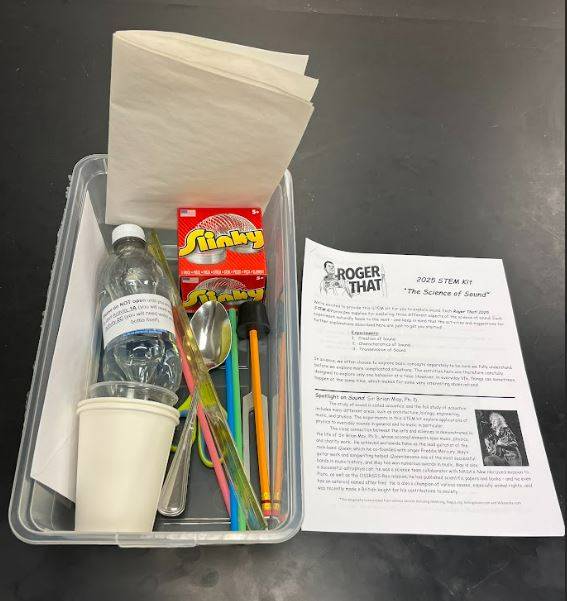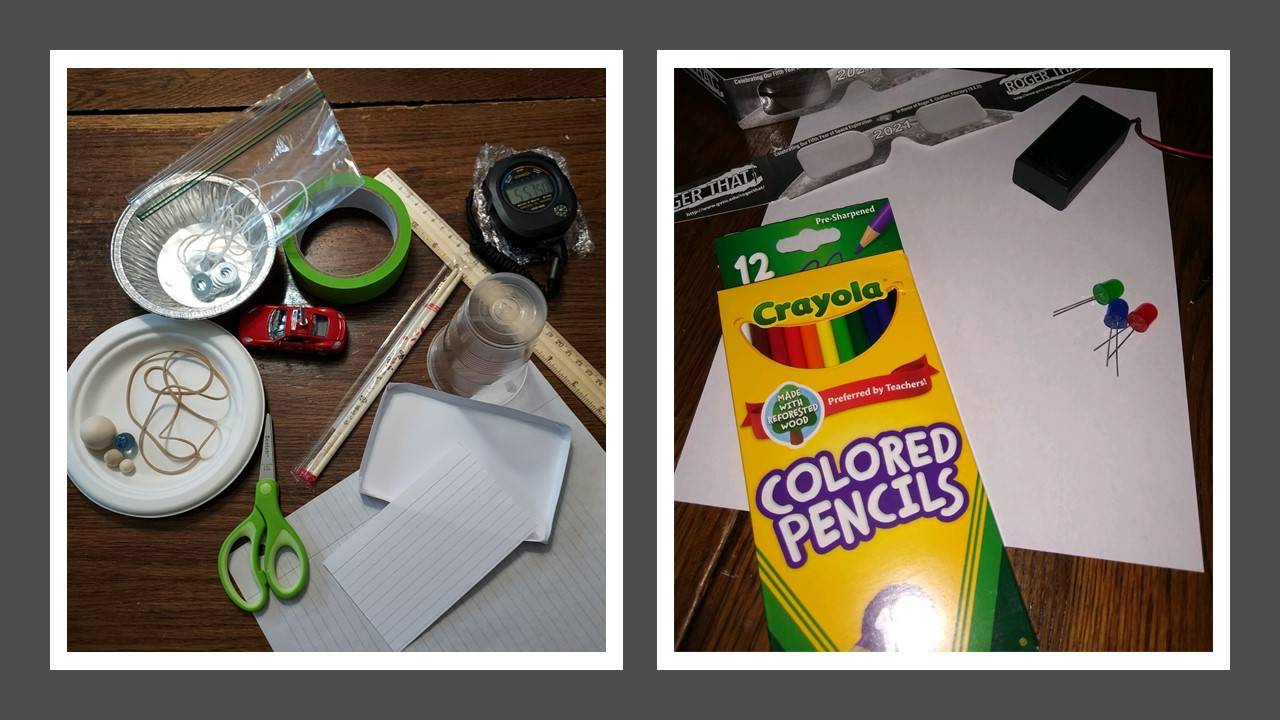STEM kits
Since 2021 the team at Roger That! has been putting together STEM kits for distribution to under resourced schools. The kits are aligned with 3rd - 5th grade NGSS guidelines. Each kit comes with all the equipment and instructions necessary for teams of up to 4 students to perform a series of scientific experiments on a particular topic. Team members visit the schools to deliver the kits, explain how to use them and a little about the science, and talk about Roger That! to classrooms.
This year we’re excited to provide this STEM kit for you to explore sound. Each Roger That! 2024-25 STEM Kit provides supplies for exploring three different aspects of the science of sound.
Experiments:
- Creation of Sound
- Characteristics of Sound
- Transmission of Sound
To request kits please contact us at [email protected].


Past STEM kits
“The students enjoyed planting and discussions on the different experiment groups and why some plants did better than others. The kits gave these students a wonderful opportunity to start plants in a controlled environment and much was analyzed on how it might or might not work in space. We enjoyed the different challenges each experiment focused on.”
—
Science teacher, 4th-5th grade, Coopersville ISD
Wave Behavior
This STEM kit for you to explore the basic aspects of wave behavior, because absolutely everything that exists can be considered as a wave under specific conditions. (In quantum physics, this is called “wave-particle duality.”) Water waves, light waves, and sound waves are probably the most familiar examples of waves in our everyday lives, but even matter and gravity can be understood as waves!
Experiments:
- Reflection
- Refraction
- Diffraction
Forces and Motion
Understanding forces and motion is necessary for space travel, and each Roger That! STEM Kit provides supplies for exploring five different aspects of forces and motion.
Experiments:
- Inertia
- Forces
- Falling objects
- Pendulum
- Projectiles
Plant Growth
For astronauts to travel to Mars and beyond they will need to grow their own food, and each Roger That! STEM Kit provides supplies for exploring four different aspects of plant growth.
Experiments:
- Seed size
- Soil
- Water
- Light

STEM kits for 2021 (right) to study light diffraction and 2022 (left) to study forces and motion.
Contact us ([email protected]) to get STEM kit documentation which includes descriptions of the experiments, methodology, supplies needed etc.
